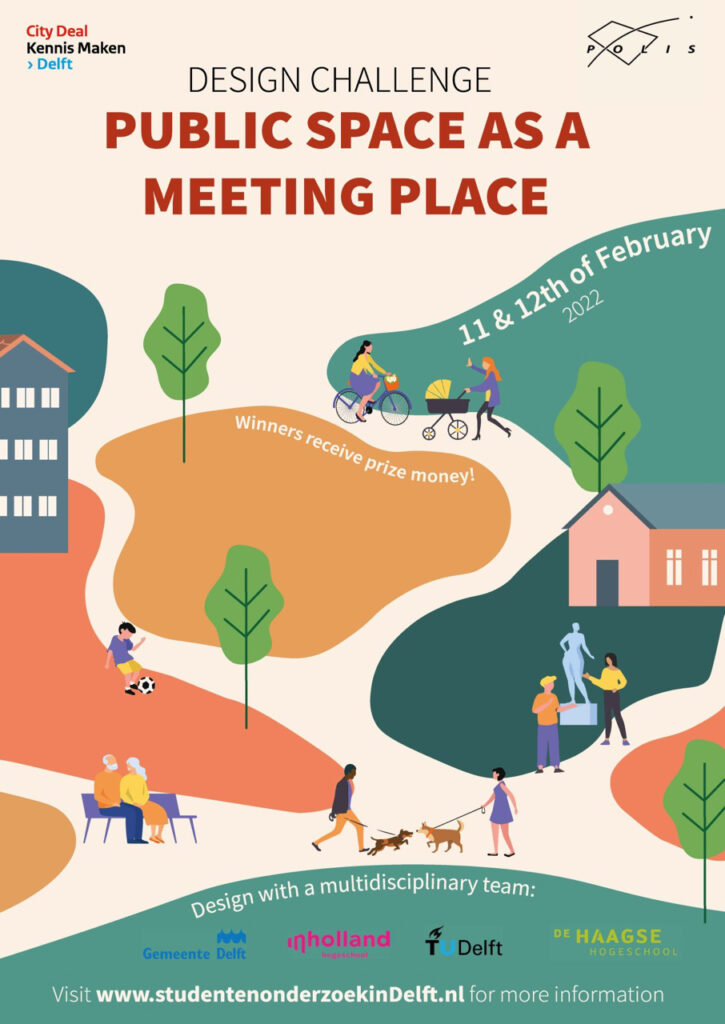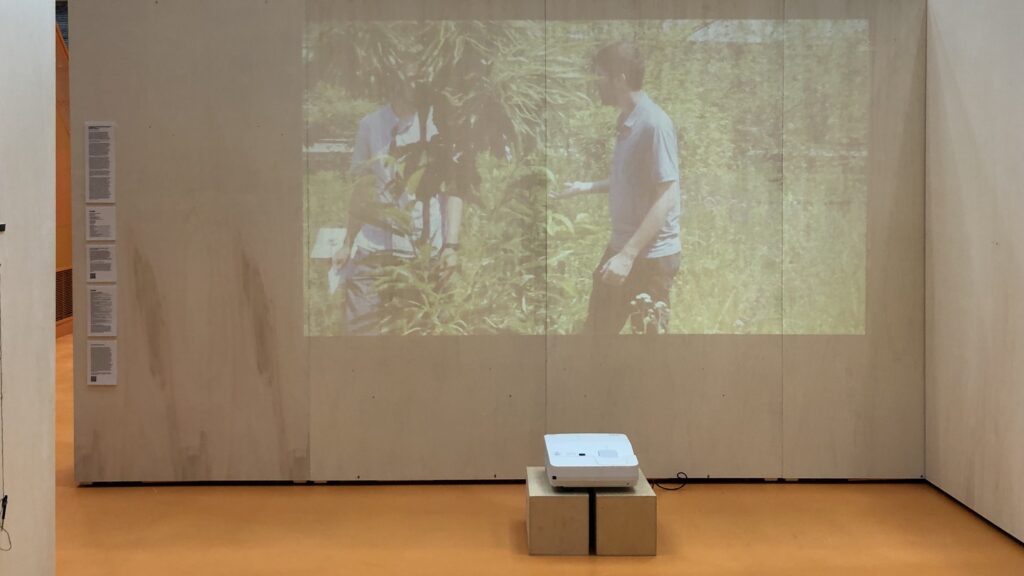| Public space is the place to play, move and meet. This applies to our rich city center with all its shops and restaurants, but just as much to residential areas. But how can we make these public spaces even more attractive for all types of users? At the beginning of February, students from TU Delft, The Hague University of Applied Sciences, and Inholland University of Applied Sciences developed various ideas for the public space in the Tanthof district. In various teams, the students have investigated how existing routes or routes to be designed can be provided with ‘stopping points’: places where you can rest for a while, look around and chat with other residents. During this meeting of Delft Design, these design sketches will be briefly explained and we would like to discuss these design sketches with you and, among others, Tako Postma (City Architect of Delft), Eveline Berghout – van der Schee (urban designer, City of Delft), Maurice Harteveld (researcher, Design of Public Spaces, TU Delft), Ben Kuipers (landscape architect) and Flip Krabbendam ( architect) in a discussion about the preconditions for successful public space. The discussion starts with a lecture on Designing Domestic Places by Maurice Harteveld Afterward, there is an opportunity to chat and view the different designs. This while enjoying a snack and drink. The challenge is organized by Delft Design in collaboration with the City Deal Kennis Maken Delft, study association POLIS and architect Flip Krabbendam. | De openbare ruimte is dé plek voor spelen, bewegen én ontmoeten. Dat geldt voor onze rijke binnenstad met al zijn winkels en horeca, maar even zo goed voor woonwijken. Maar hoe kunnen we deze publieke ruimten nog aantrekkelijker maken voor alle type gebruikers? Begin februari hebben studenten van de TU Delft, De Haagse Hogeschool en Hogeschool Inholland verschillende ideeën uitgewerkt voor de openbare ruimte in de wijk Tanthof. In verschillende teams hebben de studenten onderzocht hoe bestaande of nieuw te ontwerpen routes kunnen worden voorzien van ‘halteplaatsen’: plekken waar men even kan uitrusten, kan rondkijken en een praatje kan maken met andere bewoners. Tijdens deze bijeenkomst van Delft Design worden deze ontwerpschetsen kort toegelicht en gaan we graag met u en onder andere Tako Postma (stadsbouwmeester van Delft), Eveline Berghout – van der Schee (stedebouwkundige. City of Delft), Maurice Harteveld (onderzoeker, Design of Public Spaces, TU Delft), Ben Kuipers (landschapsarchitect) en Flip Krabbendam (architect) in gesprek over de randvoorwaarden van succesvolle openbare ruimte. De discussie wordt geopend met een lezing over Het Ontwerpen van Huiselijke Plekken door Maurice Harteveld Na afloop is er gelegenheid tot napraten en het bekijken van de verschillende ontwerpen. Dit onder het genot van een hapje en drankje. De challenge wordt georganiseerd door Delft Design in samenwerking met de City Deal Kennis Maken Delft, studievereniging POLIS en architect Flip Krabbendam. |
The Public Space as Meeting Place
De Openbare Ruimte als Ontmoetingsplek
where:
Prinsenkwartier en online
when:
2 March 2020
open 19.30, start 20.00 untill 22.00



